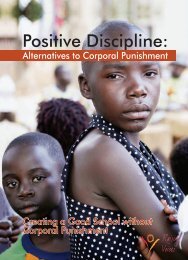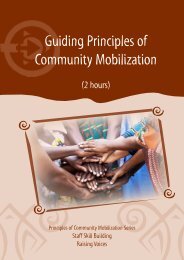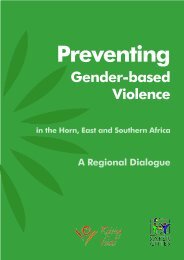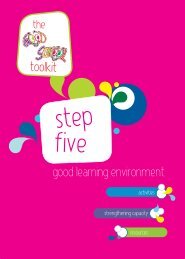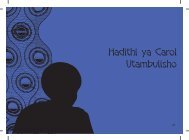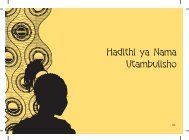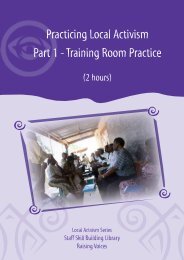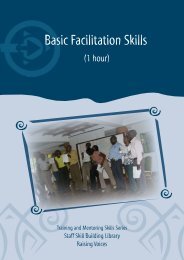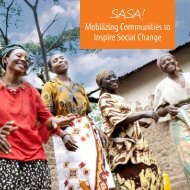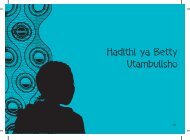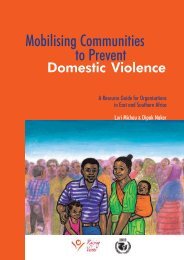Download PDF - Raising Voices
Download PDF - Raising Voices
Download PDF - Raising Voices
Create successful ePaper yourself
Turn your PDF publications into a flip-book with our unique Google optimized e-Paper software.
Creating Safer Schools: Lessons Learned; Strategies for Action SessionSession12Addressing power imbalancesDr. Amandina Lihamba, Professor, University of Dar esSalaamRelationships in school are based on the realitythat students listen and teachers talk. When weare encouraging and facilitating the voices ofchildren to be heard, it means we are subverting some ofthe teacher/student power relations that exist. Teachers arenot familiar with having students who answer back moreconfidently. So this power relation, it’s a very good thing to beaware of, and to help teachers be aware of it for themselves,also. Furthermore, the power relations continue to go upthe scale. When people – students and teachers – all of asudden find their voices, they can question things. They don’thave to accept everything. Teachers also can question theadministration; they can question why things are happeningthe way they are. They can realize they also havepower relationships with the administration, andwith the Ministry.Key take-away points:1. Creating partnerships with a variety of stakeholders,including teachers, and supporting them to fight whatthey care about, allows us to create a broader supportfor the idea of a safer school. It must be a joint effortso that there is a collective ownership of the ideas.2. Public media is a powerful force whose potentialas a tool for social change has to be tapped into toinfluence public discourse on the quality of education.3. Public policy, research, and school-based strategiesmust create a collective accountability and an impetusto act.16



